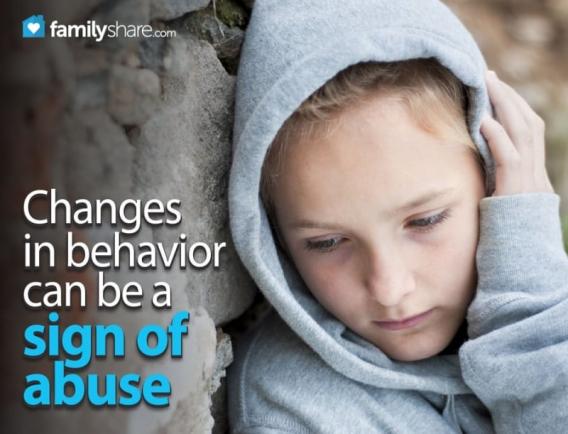
As a young mother, I never dreamed my child would be abused. I was a stay-at-home mom. My child was rarely alone with anyone but family and friends. Even though, I was careful and cautious it still happened.
I began to notice marked changes in my child's behavior. She was completely potty trained, but started having accidents. I also noticed bouts of anger, other unexplained behaviors and physical symptoms. Like any good mother I went straight to her doctor. Her doctor later lamented the fact that he did not recognize the signs early enough. I knew something was wrong. I just couldn't put my finger on it.
After a year of wrestling with the problem, my father suggested I take her to a counselor. I contacted my church. They promptly made arrangements and offered to pay for an evaluation and therapy, if needed. It was during the very first therapy session as I listened through the door, our lives changed forever.
We teach our children about "stranger danger," when problems often lurk in our own homes. At that time, I knew nothing about child abuse. Since that time, I have endeavored to learn everything I can and keep my eyes wide open. I didn't understand that abuse most often occurs between family members. The online Helpguide.org reports, " While abuse by strangers does happen, most abusers are family members or others close to the family." [http://www.helpguide.org/mental/childabusephysicalemotionalsexualneglect.htm](http://www.helpguide.org/mental/childabusephysicalemotionalsexualneglect.htm)
A child who is taught to say "no," as I taught my child, can often carry terrible feelings of guilt when she fails to say "no" to a family member. The abuser she trusts may be telling her that what is happening is either her fault or all-right. Abusers manipulate children by using many different tactics including:
-
Telling a child that it is the child's fault or happening because she is so pretty.
-
Bribing a child by offering to let him stay up late or watch a grown-up movie.
-
Drawing children in slowly by using games.
-
Offering bribes or threats.
If you have concerns that something may have happened to your child the following list includes some pointers on how to talk with your child:
-
Create a safe comfortable place where you will not be interrupted.
-
Ask open-ended questions. An open-ended question is one that cannot be answered easily with a "yes" or "no." For example you could ask, "I noticed you didn't want to go to Jujitsu class anymore. Can you tell me about that?"�
-
Listen attentively, asking more open-ended and clarifying questions. Resist the temptation to give advice or interrupt.
-
Do not react emotionally if your child discloses abuse. Try to remain calm as you listen. Do not make judgment comments about the perpetrator. A child who discloses abuse will sometimes give you just the tip of the iceberg or share just a small portion of what is really happening and will wait to see how you react. If you react strongly, she may become frightened or feel like she has done something wrong and shut down. She may still love the abuser if he or she is a parent. Do your best to stay calm.
If your child discloses abuse the most important thing you can do is believe him and be prepared to act to keep him safe from further abuse; protect him.
Adult survivors of abuse are often angriest at the parent who failed to protect her. This is when choosing to put your child first will help you keep perspective and create an opportunity for hope, healing and forgiveness for both you and your child.
Once I learned that my child had been abused I wrestled with the same questions with which all parents of abuse victims wrestle:
-
Do I report?
-
How do I report?
-
If my spouse or partner is the abuser and I leave will we become homeless and how will we stay safe?
-
Whom do I go to for help?
-
Will I be believed?
There are many options for help, support and information if you think your child or someone you love is being abused:
- If your child is a victim of abuse, you can start by reaching out to local medical or mental health professionals, school counselors or local hot lines for help. Here is a list of international hotlines:
Child Abuse Hotlines:
-
US or Canada: 1-800-422-4453 (Childhelp)
-
UK: 0800 1111 (NSPCC Childline)
-
Australia: 1800 688 009 (CAPS)
-
New Zealand: 0800-543-754 (Kidsline)
-
Other international helplines: ChiWorld.org http://www.helpguide.org/mental/childabusephysicalemotionalsexual_neglect.htm
-
Local police or child protective services may have information.
-
If you believe clergy will not go to the perpetrator, he may be able to advise you on your local resources.
-
Often spouse abuse or addiction accompanies child abuse. Domestic abuse hotlines are an excellent resource for information.
-
Many communities have special child abuse assessment programs in place that utilize medical and mental health specialists. A professional may be able to assess your child appropriately, without asking leading questions and recognize the physical symptoms your child may have.
I would like to say all of the choices I had to make to keep my daughter safe were easy, but that would not be true. The only easy decision was to protect her and put her first. The hard work came during continued counseling as she worked to heal and I worked to forgive myself for not catching it the first day. The result was priceless.
After hard work, counseling for everyone and time, the great healer, I am happy to share that she grew into an amazing women and mother. She became happy, healthy, a cheerleader and expert marksman in the US Army. Hard choices lead to big payoffs for all, and now she and I want nothing more than to change the world for children everywhere.

